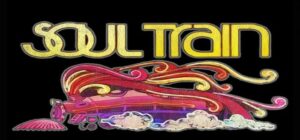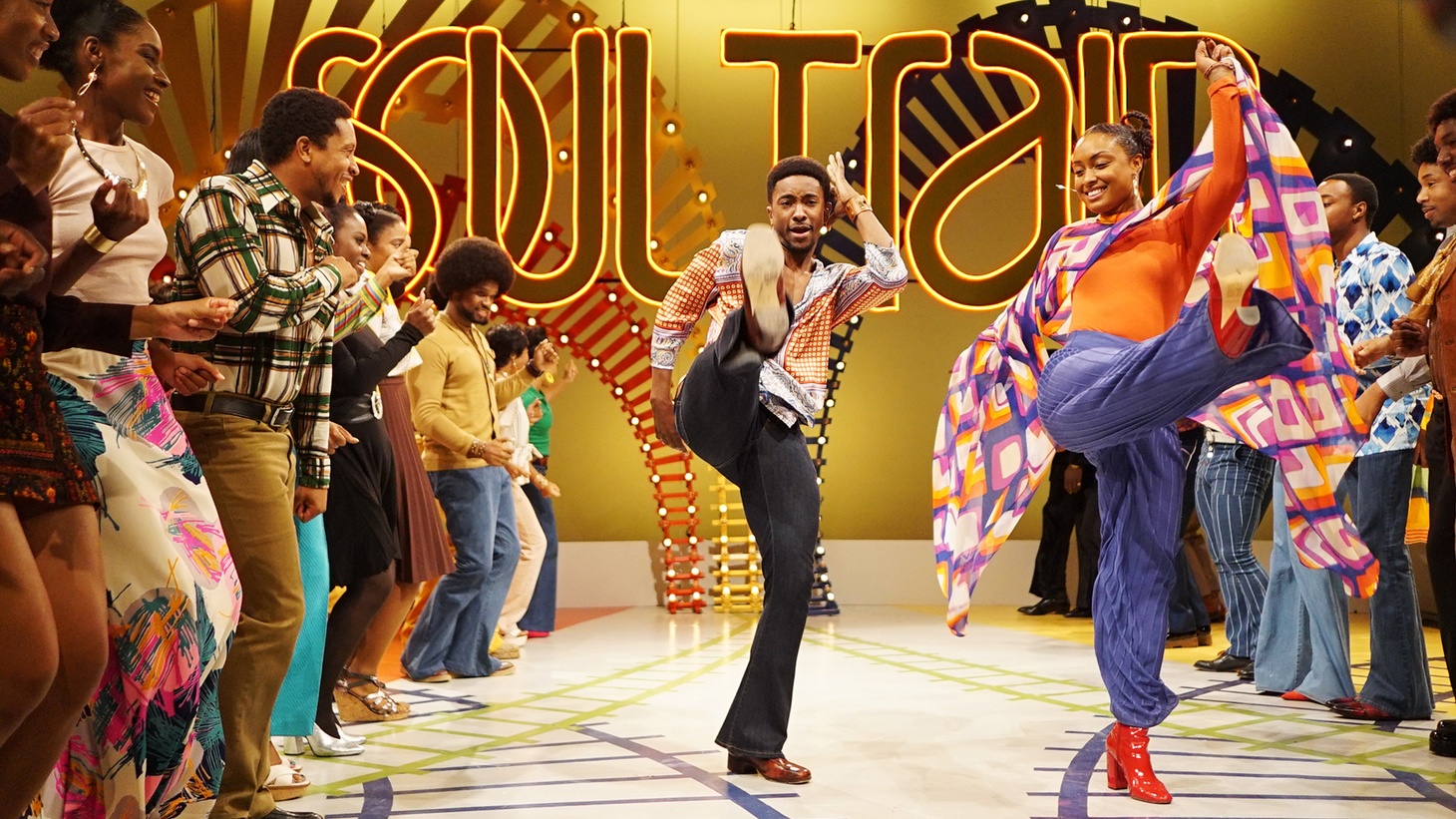Soul Train, one of the longest-running syndicated shows in television history, began in 1970 on the Chicago television station WCIU-TV when there were few outlets for popular Black culture throughout the United States. It was a radical move for the time, exhibiting the cultural perspectives of African American music, dance, and fashion clothing on television. Soul Train allowed the world to view African Americans’ many faces and elements and their unique experiences in American society. Each episode of Soul Train would be closed with founder Don Cornelius reciting the words, “Love, peace, and soul!”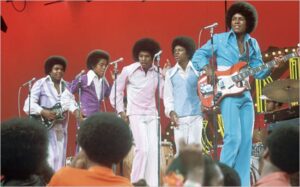
During the second season, 1971, Soul Train moved to Los Angeles, where it was broadcast nationally for the first time. The show gathered artists who represented a variety of musical genres including R&B, soul, dance/pop, disco, and gospel. By the 1980s hip-hop was added to the program and the program was credited with introducing the genre’s artists to a national audience. Soul Train encouraged and promoted both professional and amateur dancers. Performers of other ethnicities were invited to participate as well.
The overall concept of Soul Train was created and implemented by executive producer/host Donald “Don” Cortez Cornelius. Cornelius was born in Chicago, Illinois, on September 27, 1936, to Carter Cornelius, from El Dorado, Arkansas, and Thelma Booth Cornelius, from Higginson, White County, Arkansas. He grew up in the Bronzeville neighborhood on the city’s South Side and graduated from DuSable High School in 1954.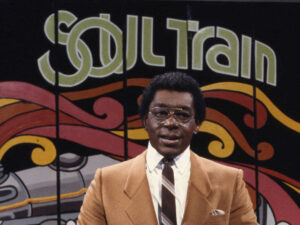
Each Soul Train show opened with the fanciful cartoon train and whistle. The performing guests were often lip-synced. However, most presentations were live and included legendary performers such as James Brown, Aretha Franklin, Smokey Robinson, and the Jackson 5. Soul Train dancers, however, proved to be the stars of the show. The first dancers came from local Los Angeles schools, Locke, Crenshaw, and Dorsey, and they all participated in line dancing which highlighted the skills of individual dancers. While the dancers were not part of the organization’s budget, they enjoyed the global travel.
In 1987 Soul Train began giving out the Annual Soul Train Music Awards, honoring the best in African American culture, music, and entertainment in 1987. In 1993, after hosting the program on television for 22 years, Cornelius stepped down. He had recognized the change in audience tastes. Three guest hosts replaced him: comic Mystro Clark (1997-1999), actor Shemar Moore (1999-2003), and actor/playwright Dorian Gregory, the final host, from 2003 until 2006. The show ended in 2006 after its 35th season.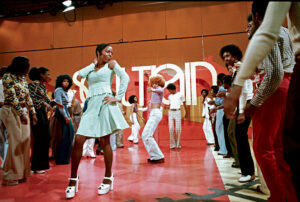
In 1995, Cornelius was inducted into the Broadcasting and Cable Hall of Fame. In 2006, he received a star on the Hollywood Walk of Fame.
Cornelius sold the Soul Train show to MadVision Entertainment in 2008. Four years later, on February 1, 2012, Donald Cortez Cornelius died at Cedars-Sinai Medical Center, Los Angeles. He had been transported there following an apparent self-inflicted gunshot wound to the head. He was 75.
Soul Train’s 50th anniversary in 2021 was celebrated in Harlem, New York, at the historic Apollo Theater. Their Living Legend Awards reflected the cultural impact of the 1,100 episodes of the show.
